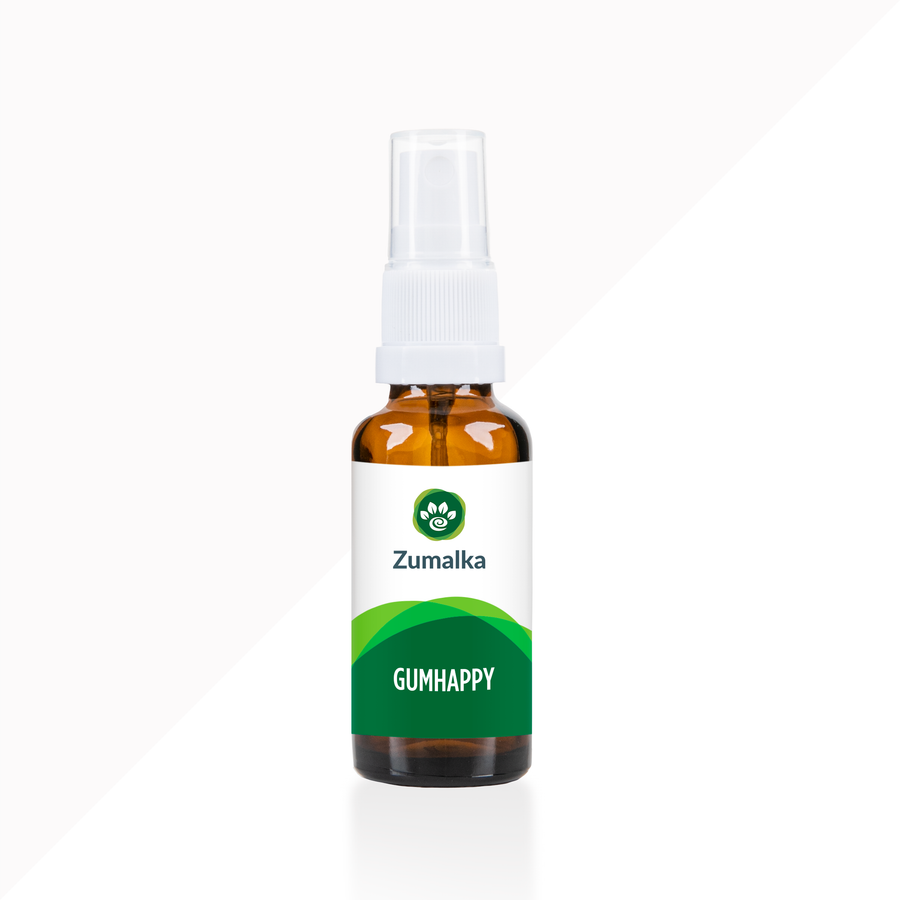Feline Stomatitis: Vet Verified Symptoms, Causes, and Treatment Options
Is your furry friend suffering from feline stomatitis? Stomatitis is a common condition in cats that can cause severe pain, oral bleeding, and even weight loss.
But don’t worry—this uncomfortable issue is manageable! Let’s explore what stomatitis in cats entails, along with some helpful tips on how you can treat it naturally at home.
A Vet Explains the Basics of Feline Stomatitis

Feline stomatitis is a painful condition marked by persistent inflammation in a cat's mouth, often beginning in the periodontium, which includes the gums and surrounding tissues.
As the condition progresses, it can spread to the tongue (glossitis) and gums (gingivitis), causing widespread oral inflammation. In simple terms, feline stomatitis is a severe form of periodontal disease that affects the entire mouth—gums, tongue, and surrounding tissues.
What Causes Stomatitis in Cats?
So, your vet just told you that your cat has stomatitis—what could have caused it? Unfortunately, the answer isn’t straightforward.
We don’t fully understand the exact mechanism behind severe stomatitis in cats. However, we do know it’s a multifactorial condition, meaning there’s more than one contributing factor!
Periodontal disease and bacterial infection are NOT just the only triggers
The oral cavity is constantly exposed to a variety of bacteria.
In healthy cats, the immune system can usually handle most of these infectious agents. However, one potential cause of stomatitis is that it may be immune-mediated, meaning the cat's immune response reacts abnormally, triggering inflammation.
Various studies suggest that viruses play a significant role in feline stomatitis. Cats infected with Feline Immunodeficiency Virus (FIV), Feline Leukemia Virus (FeLV), or Feline Calicivirus are more prone to developing this condition, a trend often observed by veterinarians.
Clinical Signs of Stomatitis in Cats

Do you think your feline friend might have stomatitis? This condition is most commonly seen in middle-aged to older cats and typically leads to the following symptoms:
- Oral pain – Cats may struggle to eat or paw at their mouths due to discomfort.
- Halitosis – Bad breath is common with both mild and severe stomatitis.
- Excessive drooling – Stomatitis is painful, and affected cats often drool more than usual.
- Oral bleeding – This can occur as a result of severe inflammation in the mouth.
- Weight loss and dehydration – Chronic pain from stomatitis can lead to reduced eating and drinking, causing noticeable weight loss and dehydration.
These symptoms can also occur with an inflammatory dental disease or after a tooth extraction. That’s why prompt medical management is essential if you notice any of these clinical signs.
Treating Oral Inflammation and Dental Disease in Cats: It's No Easy Task!
So you're probably now wondering, how do veterinarians treat such a severe form of periodontal disease in cats? Well, let's take a look.
Expect a thorough checking (and possible extraction) of your cat's teeth.
Your veterinary dentist will likely recommend a thorough scale and polish procedure to remove plaque and tartar, helping to prevent bacterial infections. Oral surgery is also commonly advised, often involving the extraction of affected teeth, and sometimes even healthy ones.
In severe cases, a full mouth extraction may be necessary to alleviate extreme pain caused by advanced gum disease.
During the procedure, your veterinarian will carefully examine your cat’s mouth for signs of pain, assess the severity of caudal stomatitis (inflammation at the back of the mouth), and evaluate the overall level of inflammation.
Dental X-rays may be taken to assess the condition of the teeth and bone beneath the gum line, typically to detect signs of tooth resorption.
Cyclosporine can help stimulate a positive response in many cats.
Feline stomatitis often results from an exaggerated immune response to plaque bacteria. To manage this reaction, regular use of oral immunosuppressive medications can be effective.
One commonly used option is Cyclosporine, known for its immunomodulatory properties, which help reduce stomatitis symptoms.
Bovine Lactoferrin: a holistic solution for managing feline oral inflammation.
Bovine Lactoferrin, an all-natural protein from colostrum, acts as an immune stimulant, balancing the immune system and boosting white blood cell production. It is often mixed with milk and applied to a cat’s gums.
Veterinarians use lactoferrin to reduce oral inflammation, particularly in feline stomatitis, by preventing plaque bacteria from attaching to the mouth, improving both oral health and immune function.
5 Tips on Keeping Your Cats' Teeth Healthy at Home

Feline stomatitis can be a frustrating disease, but the good news is that there are simple at-home strategies to help manage it. Let’s dive into those next!
- Brush your cat's teeth! The most important advice I can give is to brush your cat's teeth regularly—ideally once a day—to reduce plaque and tartar buildup. Tooth brushing and routine dental care are the first steps to preventing feline chronic gingivostomatitis (and annoying bad breath).
- Invest in antibacterial dental wipes. Choose pet-friendly dental gels or wipes with chlorhexidine, an antibacterial agent that kills surface bacteria in the mouth. These products clean more than just the gingiva and can help prevent future dental extractions.
- Consider dental diets. Feline dental diets, such as those from Royal Canin and Hill’s, are designed to minimize plaque and tartar buildup, making them a great addition to your cat’s oral care routine.
- Schedule regular dental checkups! Proactively manage your cat's stomatitis by scheduling annual oral health assessments with your veterinarian. Early detection helps address inflammation and pain before it worsens.
- Don't be afraid to explore homeopathy. Zumalka offers a range of powerful homeopathic supplements to strengthen your cat’s immune system. One standout is PIPTOPET, crafted with Fomitopsis betulina, a potent fungus known for its antimicrobial and immune-boosting properties.
SILVERPET is Designed to Help Deal With Cats Gingivitis
Stomatitis in pets can cause significant discomfort, leading to inflamed gums and mouth pain. Recommended by Zumalka homeopaths, SILVERPET is a natural, colloidal silver-based product that promotes gum health and strengthens the immune system.
By targeting bacteria and reducing mouth infections, this premium natural product provides gentle yet powerful relief for pets with oral discomfort, helping them feel better naturally.







Thanks for the helpful tips on treating cat stomatitis naturally. I’ll try these at home. Great read!
Hi Marian, Thanks for reaching, we are sorry to hear this about your pet’s situation. We have sent you a free email consultation, please check your inbox. Looking forward to hearing back from you.
Hello I’ve been dealing with my cat’s stomatitis for many many months now. I have spent $1,300 total so far just through different antibiotics and checkups…I’m not working ATM and am at the bottom of the barrel financially… I was just at the vet a couple of days ago and he now prescribed a atopica the immune modulating medication I believe? My cat has received 3 doses so far…but I read it can cause cancer and I’m terrified I think I’m gonna stop giving him it..I lost my 5 year old female cat less then a year ago to that…is this something i should be worried about?? Also I think I just want to get his back teeth out I think I should have did that in the first place but he kept wanting to try all these medications! then he tells me that he doesn’t think it will help anyways !I’m so unsure what to do I’m so frustrated and stressed out especially due to the fact I’m not working. Do you have any suggestions for me am I doing… Do you have any other advice for me I am in desperate desperate need for clarity on this issue. Thank you
Hi Angela, thank you for reaching out. We have sent you a consultation form directly to your email. Please reach out to us by responding to that email or give us a call directly 1 (855) 999 7609.
My kitty Mia was diagnosed several years ago with Stomatitis. She had most of her teeth removed, they left the front in place. However, the stomatitis returned. I was referred to a dental vet who then removed the remaining teeth. and also checked the gums to be sure no roots were left behind. Once again, the stomatitis returned. She was then given steroids which helped for almost a year then stopped. She was then put on Atopica which initially helped but getting it down her throat was a nightmare! Sometimes I cannot even find her to give her the medicine. So I gave up trying as sometimes I could not find her for days. I have 7 other cats in the home so there is always food out. The Atopica does not seem to be working anymore, most likely because I cannot give it to her on a regular basis. She is so afraid of me giving the medicine to her she finds the best hiding spots and as soon as I find her there, she proceeds to find a new spot. Its been very frustrating for me as she was only 4 when diagnosed and I have invested thousands into trying to help her. I looked in her mouth yesterday and it seems way in the back where her upper back teeth used to be it is still not healed. looks like a small crater slightly reddened. I cannot continue to spend money on expensive medicine that I can barely get down her throat and frightens her so much that she runs from me when I just turn to look at her. Any suggestions would be appreciated! Thank you!
Leave a comment